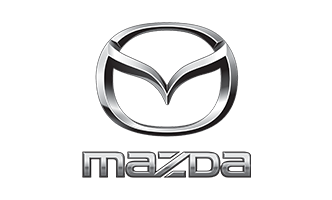Buying vs. Leasing a Car
Understanding Buying vs. Leasing Cars
To decide which way is best for you to get a car, it's important to know the differences between buying and leasing. This helps you make a smart choice based on your money situation, how you live, how you drive, and what you like.
Let's look at the good and bad points of buying and leasing, how much they cost, and why you might pick one over the other.
BUYING
Who Gets to Keep It
You can pay for a car all at once or pay a little bit each month. Either way, it's yours to keep.
If you pay a bit each month, you have to do what the lender says, like giving some money up front and making payments on time. If you don't, they can take the car back.
Most people don't have enough cash to buy a car all at once, so they get a loan from a dealership, bank, credit union, or someone else. They pay for the car plus extra money called interest over a few years.
The lender checks how much money you make, your credit score, and how much the car costs to decide how much you can borrow and how much interest you pay. After you talk about it and sign some papers, the car is yours.
Paying at the Start
If you're getting a loan, the bank might want some money up front to make sure you'll pay them back. This is called a down payment. It's usually 10% to 20% of how much the car costs and makes your monthly payments lower.
You can also trade in another car and use any extra money for your down payment. The amount of the down payment depends on what the lender wants and your credit score.
What Happens Later
New cars lose value over time. In the first year, a car can lose almost 20% of its value. The amount it loses depends on what kind of car it is and how old it is.
Even though cars lose value, buying one helps you save money over time, as long as you pay more than the car loses in value. You can use this extra money to help pay for your next car when you want one.
Your car is worth whatever someone will pay for it later, depending on how well you take care of it. (Keep it in good shape with regular maintenance at an authorized shop!)
No More Payments
Once you finish paying what you owe, the car is all yours. The lender will send you a letter saying you've paid everything and the car is all yours.
LEASING
Who Owns It
When you lease a car, it's like borrowing it. You're paying to use the car, but the finance institution that you leased it through actually owns it. This is usually why you pay less per month in a lease than if you were to buy the car.
Leasing also protects drivers from unexpected drops in value from unexpected circumstances. For example, if the vehicle you lease depreciates due to a recall, this won't affect you the way it would if you purchased a vehicle.
Upfront Costs
Leases often don't require any type of a down payment. All you usually have to pay is the first month's payment, a security deposit, the acquisition fee, and other fees and taxes. But, as with a purchase, if you want to lower your monthly payments, you can always pay more upfront.
Future Value
In most leases, you don't end up owning a vehicle. Therefore, you won't be responsible for selling it. That's the financial institution's job. However, you may have mileage limits-typically between 12,000 and 15,000 miles per year-and wear and tear guidelines that, if you exceed them, could cost you extra money when you turn your vehicle back in.
Most lease terms range between two and three years, which may be attractive to drivers who like to drive a new car every few years. Leasing could also allow you to drive more car for less money, especially if you can only afford to buy a car at a lower market value.
End of Payments
Most people return the vehicle at the end of the lease term, but some like to purchase it during their lease or at the end. Others like to trade it in before their lease is over. Just ask us about these different options before signing any paperwork and we'll make sure that you have your lease set up the way you want it.
Best Cars to Lease
The best cars to lease are those with the best book value after the term of the lease. Since they depreciate less, you pay less. Review the lease ratings to see which cars retain their value.
Buying vs. Leasing: Which Is Right for Me?
Shopping for a new car is always exciting, but it can be difficult to choose between buying and leasing a vehicle. If you're on the fence over buying or leasing, talk to a car dealership near you to discuss your options. They'll go over each option and help you find a form of payment that makes the most sense for your financial situation.
The finance center at San Leandro Mazda offers a variety of leasing and financing options for the brand-new Mazda and used vehicles in our inventory. If you're ready to lease or buy your next vehicle, contact us online.
